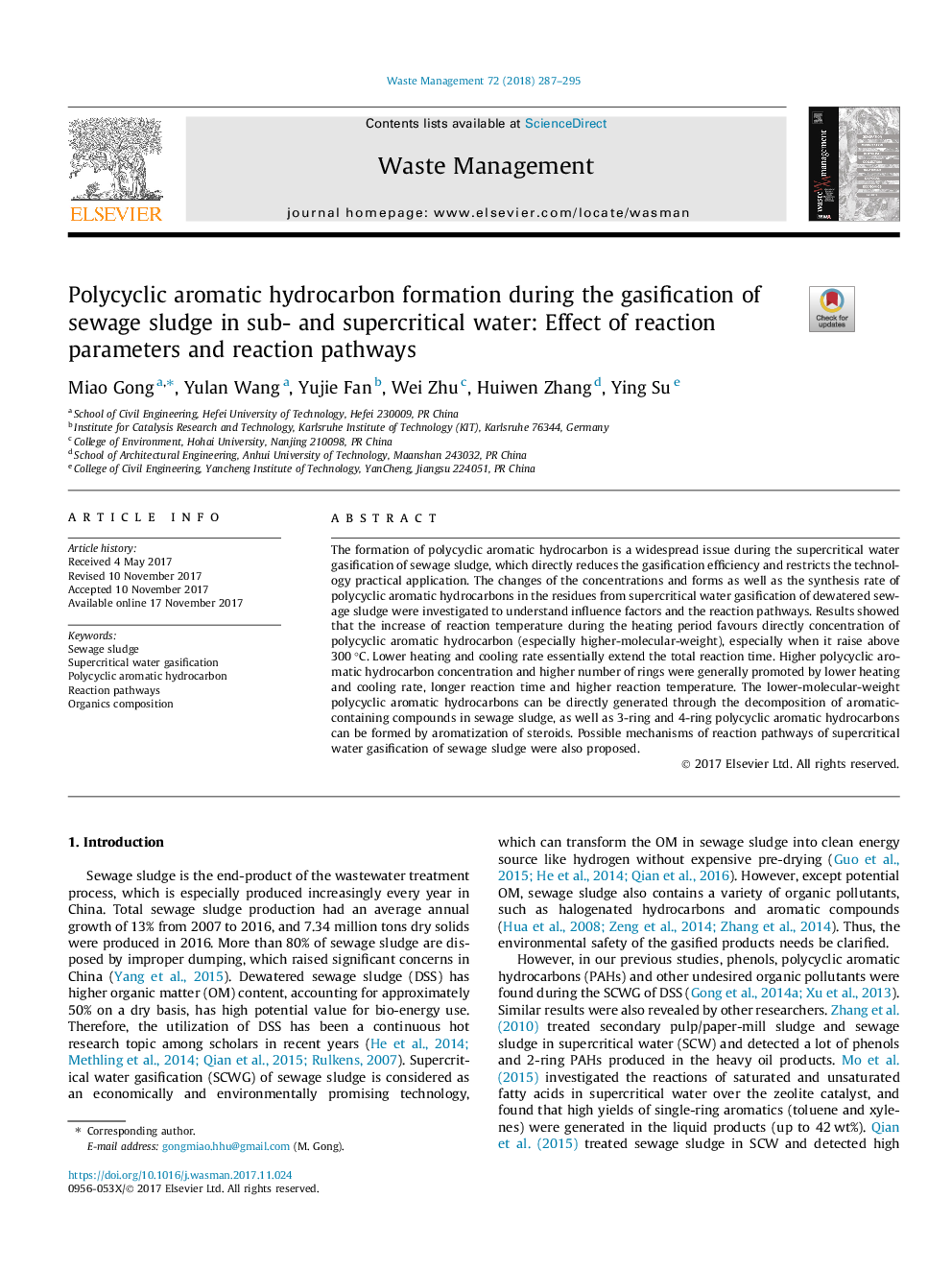| Article ID | Journal | Published Year | Pages | File Type |
|---|---|---|---|---|
| 8870121 | Waste Management | 2018 | 9 Pages |
Abstract
The formation of polycyclic aromatic hydrocarbon is a widespread issue during the supercritical water gasification of sewage sludge, which directly reduces the gasification efficiency and restricts the technology practical application. The changes of the concentrations and forms as well as the synthesis rate of polycyclic aromatic hydrocarbons in the residues from supercritical water gasification of dewatered sewage sludge were investigated to understand influence factors and the reaction pathways. Results showed that the increase of reaction temperature during the heating period favours directly concentration of polycyclic aromatic hydrocarbon (especially higher-molecular-weight), especially when it raise above 300â¯Â°C. Lower heating and cooling rate essentially extend the total reaction time. Higher polycyclic aromatic hydrocarbon concentration and higher number of rings were generally promoted by lower heating and cooling rate, longer reaction time and higher reaction temperature. The lower-molecular-weight polycyclic aromatic hydrocarbons can be directly generated through the decomposition of aromatic-containing compounds in sewage sludge, as well as 3-ring and 4-ring polycyclic aromatic hydrocarbons can be formed by aromatization of steroids. Possible mechanisms of reaction pathways of supercritical water gasification of sewage sludge were also proposed.
Keywords
Related Topics
Physical Sciences and Engineering
Earth and Planetary Sciences
Geotechnical Engineering and Engineering Geology
Authors
Miao Gong, Yulan Wang, Yujie Fan, Wei Zhu, Huiwen Zhang, Ying Su,
